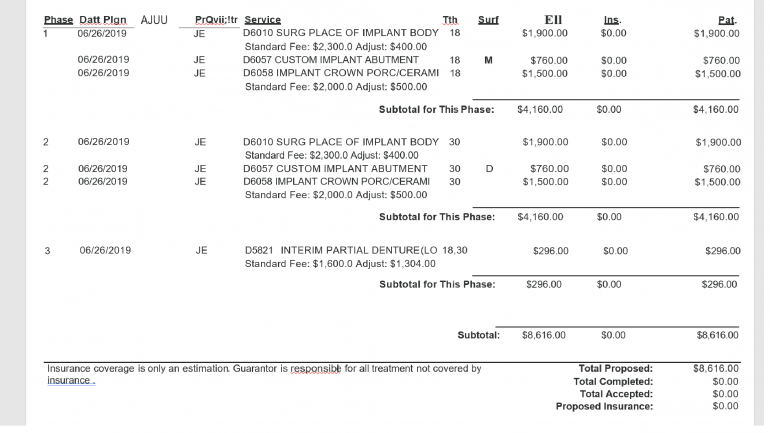
Dental Code D5960: Speech Aid Prosthesis Modification
Dental Code D5960 refers to the procedure known as speech aid prosthesis modification. This code is used in dentistry to describe a specific treatment aimed at improving speech function for individuals who have experienced speech impairments due to dental or oral conditions.
What does Dental Code D5960 mean?
Dental Code D5960 specifically focuses on the modification of speech aid prostheses. Speech aid prostheses are dental appliances designed to assist individuals with speech difficulties resulting from oral or dental abnormalities. These prostheses are custom-made devices that aid in the proper articulation of sounds and improve overall speech clarity. When modifications are required to enhance the effectiveness of these appliances, Dental Code D5960 is utilized.
Evaluation and Assessment
The first step in the speech aid prosthesis modification process is an evaluation and assessment conducted by a qualified dentist or prosthodontist. This initial evaluation is crucial to understand the patient's unique needs and challenges. During this phase, the dental professional will thoroughly examine the patient's oral cavity, teeth, and speech patterns.
The examination will involve assessing the condition of the patient's teeth, gums, and oral structures to identify any abnormalities or factors contributing to speech difficulties. The dentist will also evaluate the patient's jaw movement and overall oral functionality. This assessment helps determine the root cause of the speech impairment and whether a speech aid prosthesis modification is an appropriate solution.
Impressions and Models
Once the evaluation is complete, the dentist will take impressions of the patient's teeth and oral structures. These impressions are used to create accurate models of the mouth, which serve as a foundation for designing and fabricating the modified speech aid prosthesis.
During the impression process, the dentist will place a tray filled with a soft, putty-like material in the patient's mouth. The patient will be asked to bite down on the tray, allowing the material to flow and capture the shape and contours of their teeth and gums. This process ensures that the resulting models are precise and tailored to the individual's unique oral anatomy.
Prosthesis Modification
Based on the evaluation and the models, the dentist will proceed with the modification of the speech aid prosthesis. This step involves making adjustments or additions to the existing prosthesis to improve its fit, stability, and functionality.
The modifications may include reshaping the prosthesis to match the patient's oral structures more accurately. This ensures a better fit and increased comfort while wearing the prosthesis. The dentist may also add or refine artificial teeth on the prosthesis to improve the patient's ability to articulate sounds effectively.
In some cases, additional adjustments may be necessary to address specific speech-related concerns. For example, if the patient has difficulty pronouncing certain sounds, the dentist may modify the prosthesis to enhance the movement of the tongue or correct the positioning of the teeth for better speech production.
Trial and Adjustment
Once the modifications are made, the patient will undergo a trial phase, where they will wear the modified speech aid prosthesis. During this period, the dentist will assess the prosthesis' fit and comfort and evaluate its impact on speech improvement.
The patient will be encouraged to speak with the prosthesis in place, allowing the dentist to observe the changes in speech clarity and articulation. The dentist will closely monitor the patient's feedback and make any necessary adjustments or fine-tuning to ensure optimal performance and patient satisfaction.
Delivery and Follow-up
After the trial phase, if the modified speech aid prosthesis meets the patient's expectations and effectively enhances speech function, it will be delivered to the patient. The dentist will provide detailed instructions on proper usage, care, and maintenance of the prosthesis.
Regular follow-up appointments will be scheduled to monitor the patient's progress and address any concerns or further adjustments that may be required. These follow-up visits are essential to ensure the long-term success and functionality of the modified speech aid prosthesis.
Summary of Dental Code D5960
Dental Code D5960, which pertains to speech aid prosthesis modification, plays a significant role in improving speech capabilities for individuals facing speech impairments caused by dental or oral conditions. Through a comprehensive evaluation, precise modifications, and close collaboration between the patient and the dental professional, this procedure aims to optimize the performance of speech aid prosthesis.
By customizing these appliances to suit the individual's specific needs, Dental Code D5960 helps restore speech clarity and enhance overall communication abilities. The evaluation phase allows the dentist to identify the underlying causes of the speech impairment, and the modification process focuses on tailoring the prosthesis to address those specific concerns.
The trial and adjustment phase ensures that the modified prosthesis fits comfortably and effectively improves speech function. The dentist closely monitors the patient's progress and makes any necessary fine-tuning to ensure optimal results.
Discover the joy of budget-conscious dental care with Dr. BestPrice! Your smile deserves quality without compromise.
